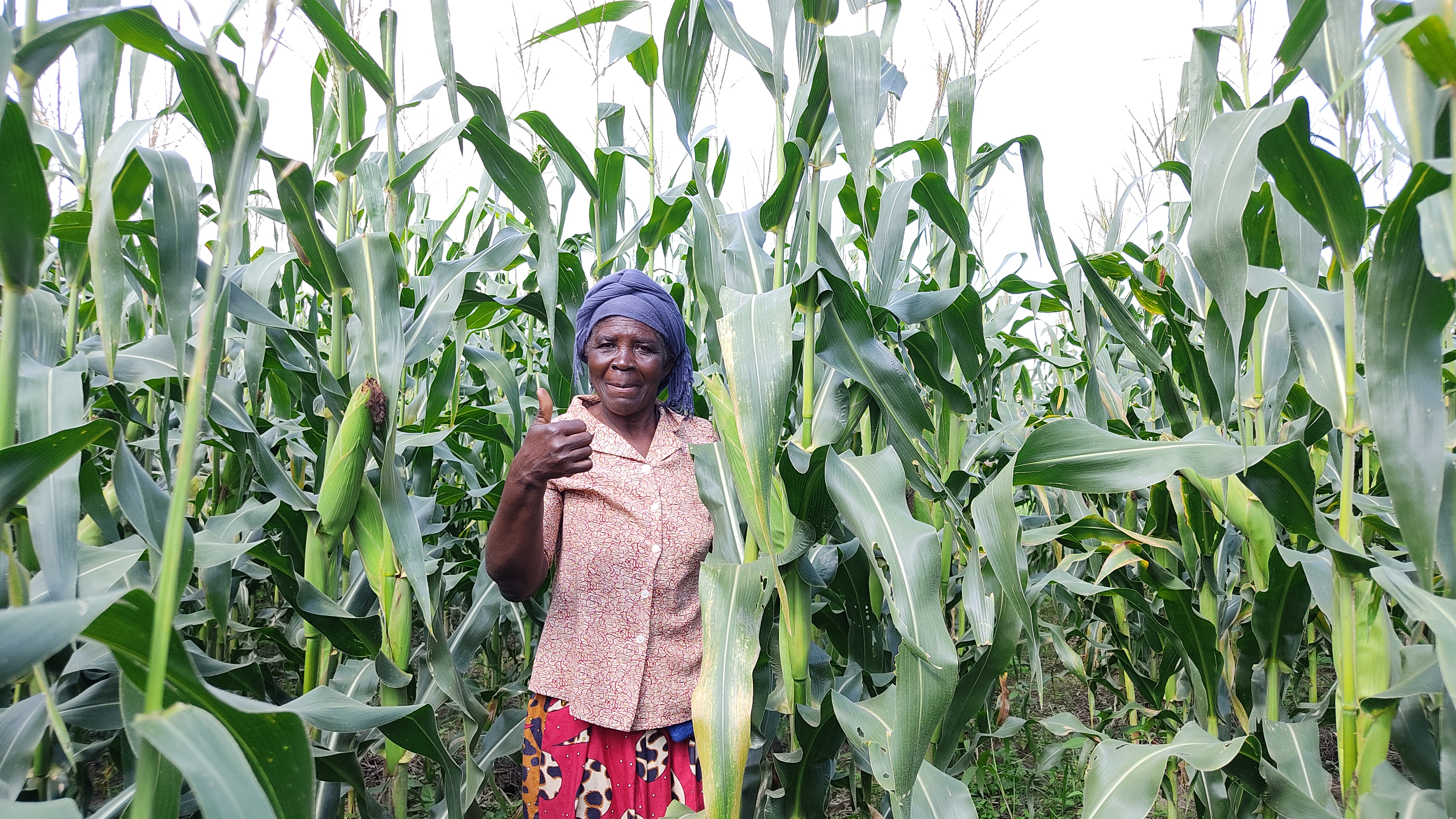
Agriculture
SOVEREIGN’S CONSERVATION AGRICULTURE INITIATIVE ACHIEVES 306% INCREASE IN YIELDS
October 21, 2024 / Marcel Chimwala

Woman appreciating her crop
ASX-listed Sovereign Metals, which is advancing the Kasiya Rutile and Graphite Exploration Project in Lilongwe, says it has come up with exciting results in the pilot phase of its conservation farming program, which it initiated along-side the local community as part of the Company’s Corporate Social Responsibility (CSR) initiatives.
In the 2023/2024 season, Sovereign piloted the conservation farming program with 90 farmers within Kasiya and the surrounding villages, each cultivating 1,250m² of maize.
Sovereign Metals MD Frank Eagar reports that the results of the initiative were very encouraging, with average yields increasing from 1,244 kg/ha in the 2023 harvest to 3,805 kg/ha in the 2024 harvest—an increase of 306%.
Eagar says following the success of the pilot, Sovereign has expanded the program to include 350 farmers for the 2024/2025 agricultural season.
“Sovereign has demonstrated, through measurable results, that conservation farming is an effective and sustainable community development project, central to long-term shared economic development objectives,” he says.
Eagar explains that Sovereign initiated a pilot conservation farming project during the 2023/2024 and 2024/2025 agricultural seasons to demonstrate that agricultural yields of subsistence and small-scale farmers can be improved.
He says: “Improving land productivity is essential to enhancing the livelihoods of subsistence and small-scale farmers in the vicinity of the Kasiya Project. Sovereign views the success of neighbouring communities as linked to our success as a company, and this is an early demonstration of Sovereign’s commitment in that regard.”
Conservation farming involves the permaculture rotation of starch crops and legumes, with minimal soil disturbance. The practice also incorporates the use of mulch and organic compost to enhance soil organic quality over time, with the primary objective of improving agricultural yields.
Conservation farming has been widely recognized for sustainably improving the livelihoods of rural communities across Southern Africa. It is particularly suited to the Malawian context, where shifting slash-and-burn agricultural systems are not feasible, and rural communities are already familiar with permaculture farming and the labour-intensive requirements to meet food, and income needs from the land.
The principles of conservation farming—timeliness, high standards of work, and minimizing resource wastage—are built on the philosophy of responsible land stewardship and intergenerational mentorship.
Successful conservation farming programs typically require agricultural input support during a four-year transition period while improved practices and crop rotation are established, and soil health is restored.
“Sovereign’s long-term objective is that conservation farming will restore the livelihoods of economically affected families and transform the area surrounding the Kasiya Project into a surplus agricultural producer for the Lilongwe and Malawian markets. In addition, this initiative is intended to catalyse the development of the local agricultural value chain, from input supply to value-added processing industries,” says Eagar.
In the pilot phase of the Kasiya Community Conservation Farming Program, several challenges were encountered and successfully mitigated as follows:
• Timing and pests: The late start of the program made it difficult for farmers to collect sufficient mulch, leading to suboptimal farming conditions and termites turning to maize crops after consuming the available mulch. In extreme cases, Sovereign provided pesticide support. Sufficient mulching will prevent this issue in future seasons.
• El Niño: The late onset of rains and prolonged dry spells due to El Niño reduced overall yields. However, the use of conservation farming techniques, particularly mulching, helped mitigate these effects. It is expected that yields would be higher in a normal rainfall year.
• Stalk borer: Stalk borer is a common pest in Malawi, and an outbreak began in December 2024. Sovereign responded by providing mentorship, monitoring, training, knapsack sprayers, and other equipment for stalk borer control. In future seasons, early and natural prevention methods will be implemented.































